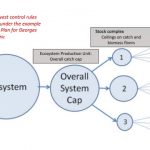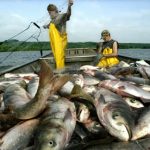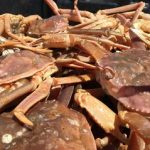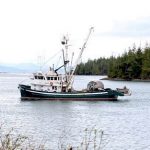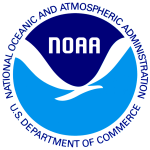Daily Archives: March 18, 2019
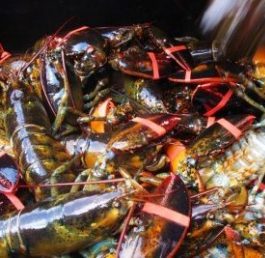
Once stymied by China tariff, lobster dealer finds a workaround
Tom Adams, CEO of Maine Coast lobster wholesale company in York, said he’s found ways to make up revenue that was lost when a 25% tariff was implemented last July on imports of lobster to China. The tariff has taken a bite out of his company’s sales, Adams said. Previously, China had been Maine Coast’s fastest growing market, but the tariff eliminated 80% of Maine Coast’s sales to mainland China. Overall, the value of live Maine lobsters exported to China dropped 64% in July 2018, compared with July 2017, industry experts said last year. China now gets most of its lobster from Canada. Adams told Mainebiz an aggressive marketing campaign has resulted in significant sales increases in other parts of Asia and in the U.S., and in retention of European sales even though that market was also disadvantaged by an 8% tariff over Canadian competitors. >click to read<21:29
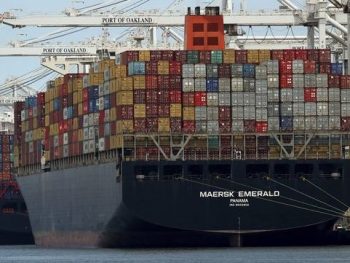
Whales are facing a deadly threat along West Coast: container ships
One day last May, a container ship entered the San Francisco Bay with extra cargo. A 45-foot-long dead female fin whale was draped across the ship’s bow. The impact with the ship had broken her back, ruptured her organs and caused severe internal bleeding. Ten whale deaths were attributed to ship strikes in 2018 – the highest number on record in California since NOAA Fisheries began tracking in 1982. The mortality rate represents an enormous increase from the average 3.4 ship strike victims recorded annually in the five previous years. Five of the 10 whales that died with boat collision injuries in 2018 were endangered or threatened fin, blue and humpback whales. >click to read<15:29
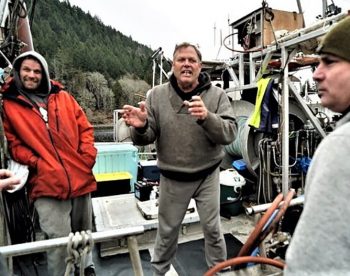
BC’s Herring War, and the Sacrifice of the Salish Sea
Indeed, it sometimes seems blame is about the only renewable resource we can rely upon anymore. There’s certainly been an abundance of it this herring season in the Strait of Georgia, here in the northern reaches of what’s fast becoming the Salish Sewer. At the dock of Hornby Island’s Ford Cove, a world-weary gillnet fisherman, Calvin Siider, squared off against a conservation group advocating for the closure of the last commercial gillnet fishery on the B.C. coast. “You are telling me what I’ve been doing my whole life is wrong,” Siider shouted. “We’re making a little bit of money out of this, and you’re trying to rip that out of our lives!” >click to read<13:44
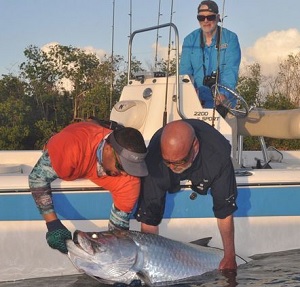
New Law Would End Most Sport Fishing in Puerto Rico
Puerto Rico is on the cusp of approving new law governing fishing in the country, and it threatens to spell the end of recreational fishing. Senate Bill 1014, recently approved by the Puerto Rico Senate will replace current fishing law, known as Law 278, with provisions antithetical to the commonwealth’s sport fishermen and its significant recreational fishing industry. The legislation, if approved by the Puerto Rico House of Representatives, will offer greater latitude to the island’s 900 commercial fishermen, while severely and unreasonably restricting roughly 200,000 recreational anglers, effectively ending a sport estimated to contribute $100 million to the country annually. >click to read<12:58
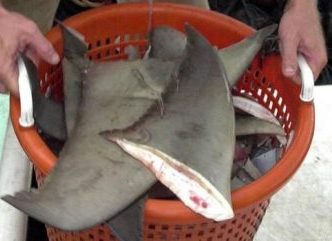
Fisherman: New Jersey shark fin ban bill punishes wrong people
A New Jersey assembly committee will vote on a bill Monday that would prohibit the selling, trading, distribution or possession of any shark fin that has been separated from a shark prior to its lawful landing. The bill is part of a larger national and international movement to crack down on illegal shark finning, but fishing industry members here say this particular bill will also hurt local fishermen not involved in the illegal trade.,,, Greg DiDomenico, president of the Garden State Seafood Association, said the act will harm the legitimate U.S. fishermen. “The U.S. is a leader in shark conservation and this legislation causes waste in U.S. fisheries,” DiDomenico said. >click to read<11:48
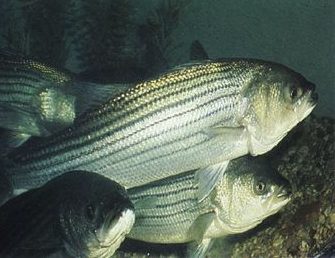
ASMFC expected to set stricter regs for harvesting striped bass
A new status review has found the striped bass population to be in worse shape than previously thought, a result that will almost certainly trigger new catch restrictions for the prized species next year in the Chesapeake Bay and along the East Coast. A preview of a soon-to-be-released stock assessment presented in February to the Atlantic States Marine Fisheries Commission indicates that the striped bass population is overfished and has been for several years.,,, While most everyone agrees on the need to act, many caution that the stock is nowhere near the crisis level that spurred the previous moratorium. Today’s spawning stock biomass, while declining, is still four times higher than it was in the early 1980s.>click to read<10:53
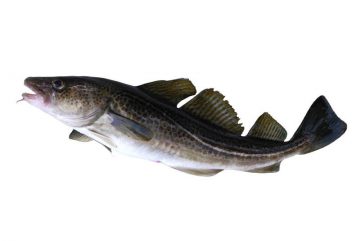
Cod fishery plummets to least valuable year since 1960s
Maine’s cod fishery, once one of the most lucrative in the Northeast, has declined to the point that it had its least valuable year in more than a half-century in 2018. The state’s industry harvesting the fish-and-chips staple goes back centuries, and it once brought millions of pounds of the fish to land year after year. But data from the state Department of Marine Resources indicate the state’s cod were worth just over $200,000 at the docks last year — less than the median price of a single-family home in Maine. >click to read<09:56


































